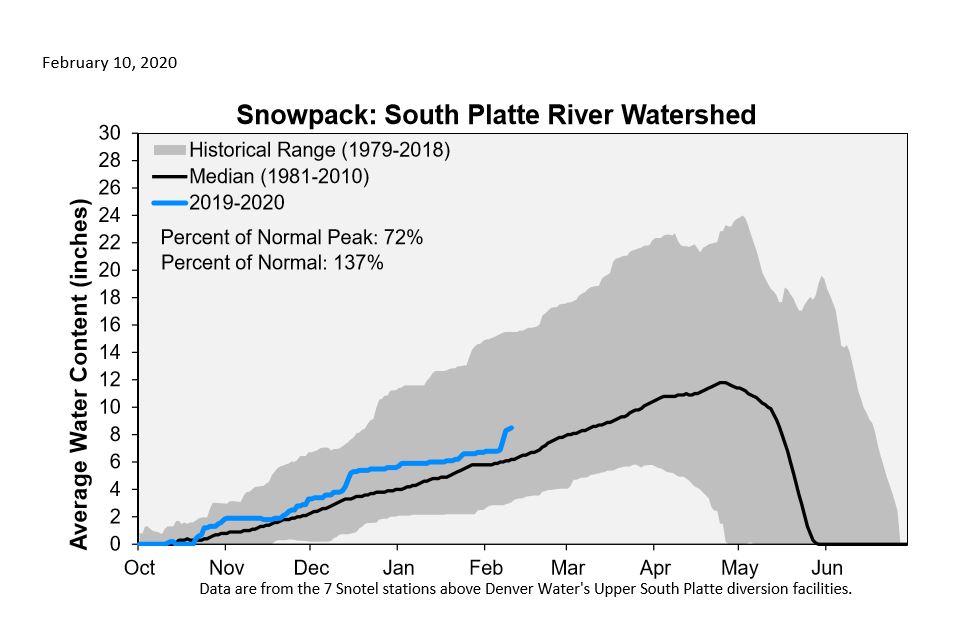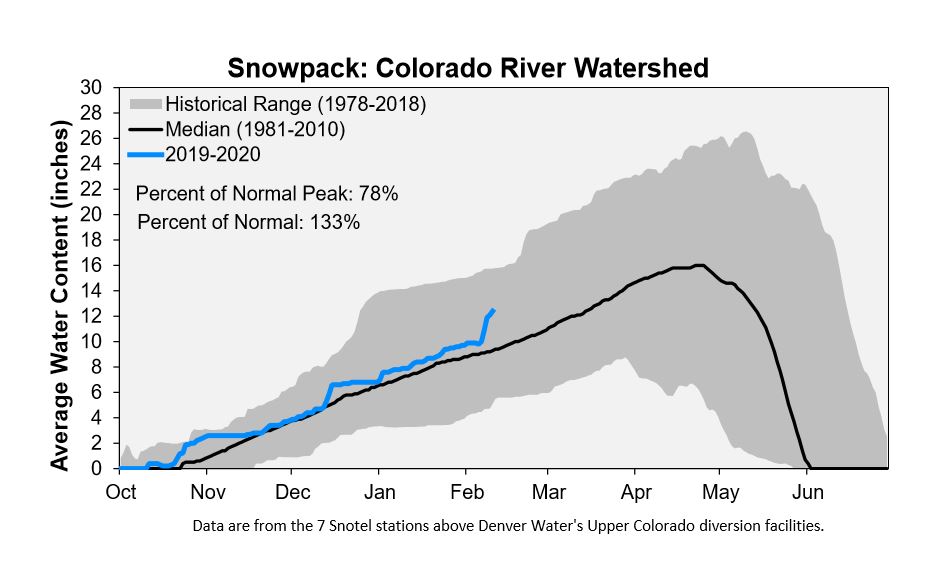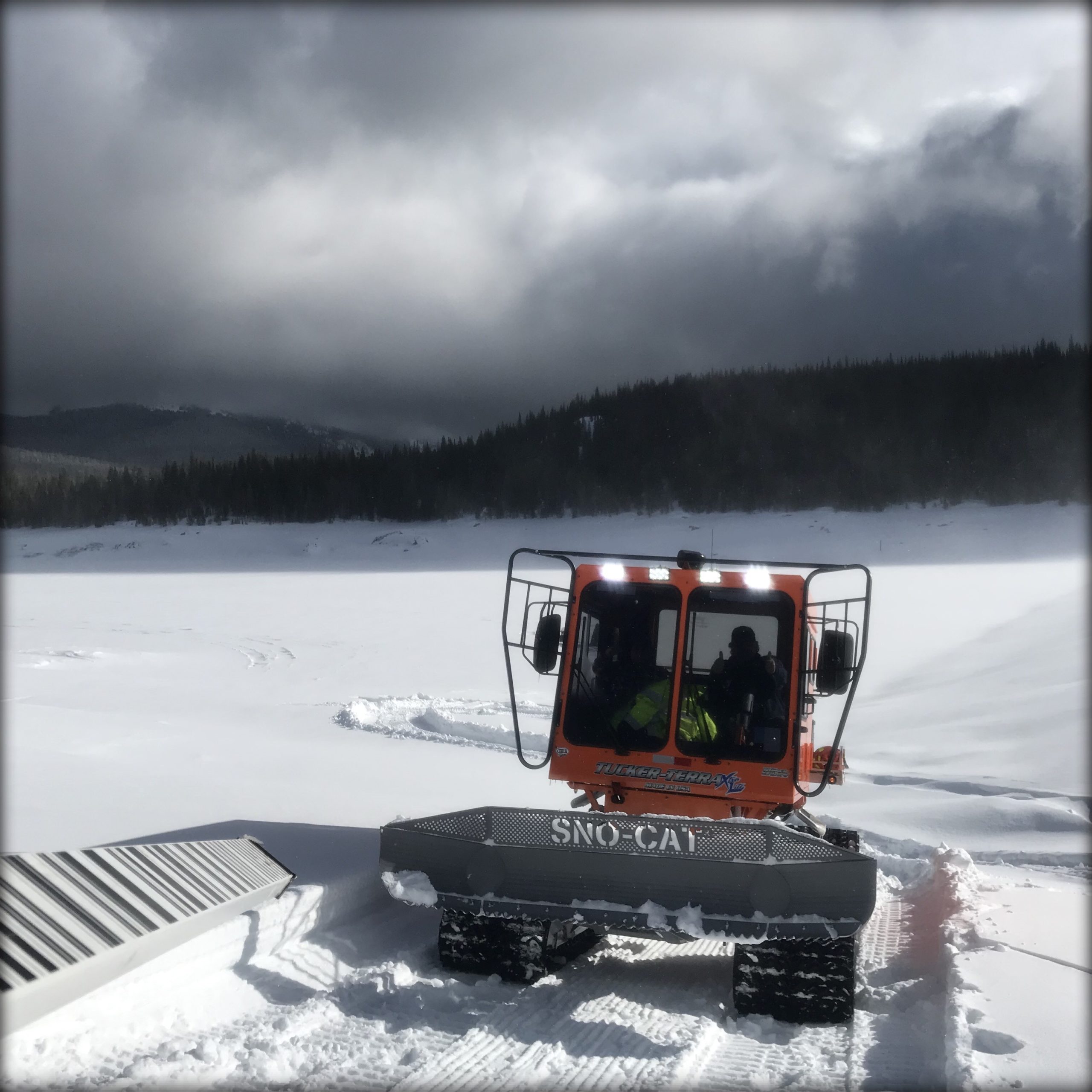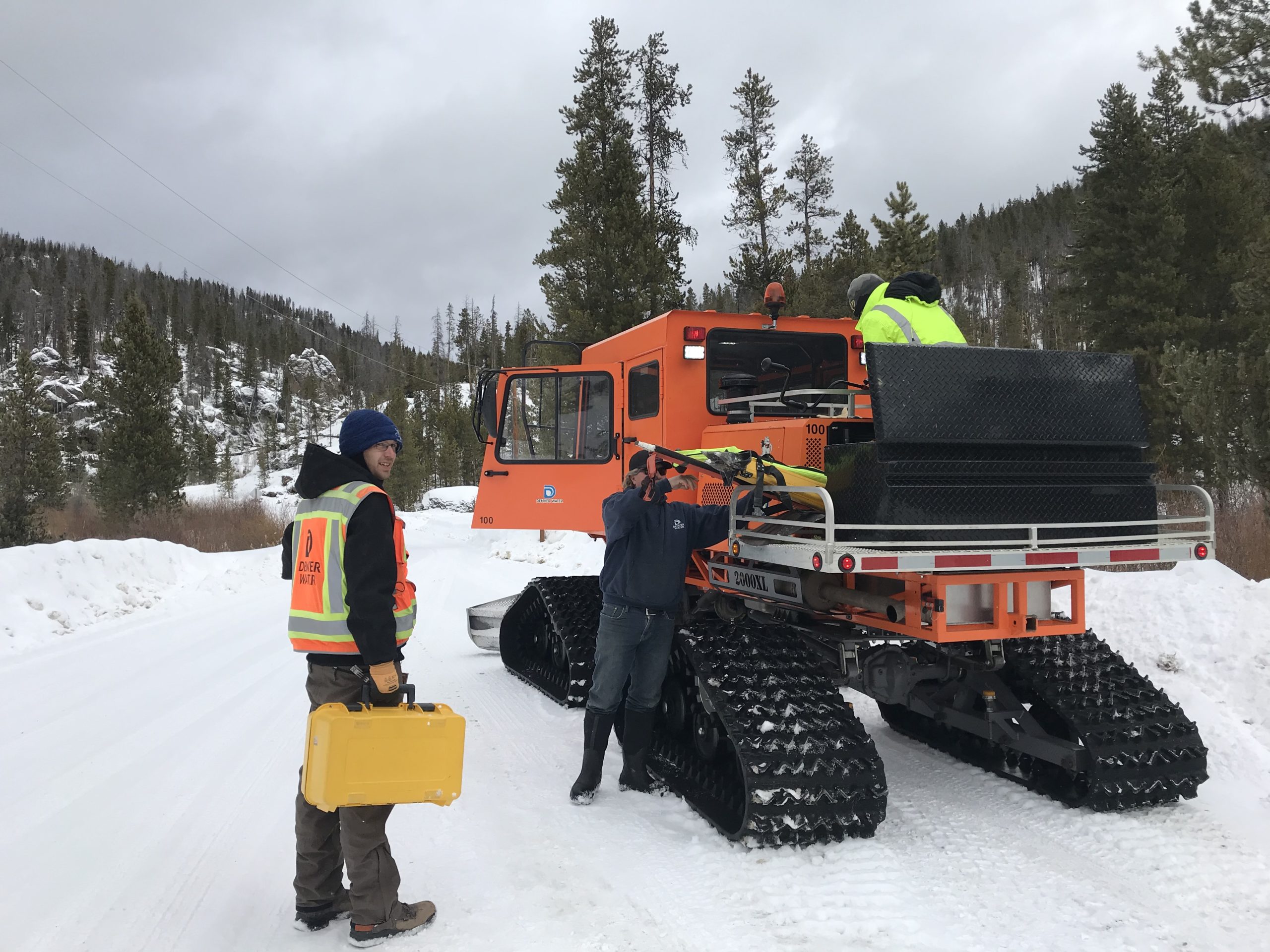
Biggest storm of the season boosts snowpack
The snowstorm that pounded Colorado’s northern and central mountains Feb. 6-10 marked the biggest storm of the season so far, a welcome sign for water watchers.
“Big storms like this one only happen a few times a season,” said Nathan Elder, manager of water supply at Denver Water. “We were just as excited to see all the snow as all the skiers who headed up to the slopes.”
How much snow did the storm produce?
In Summit County, Breckenridge Ski Resort reported receiving 62 inches of snow in a week.
Not only did the storm create epic powder conditions, but the snow eventually will melt and flow into the Blue River, which feeds Dillon Reservoir, a major source of water for Denver Water customers in the metro area.
https://twitter.com/breckenridgemtn/status/1225756859669217280
Denver Water collects water from the Upper South Platte and Upper Colorado river basins.
Before the big storm on Feb. 3, snowpack in the basins stood at 116% and 110% of normal respectively. After the storm, those totals shot up to 137% and 133% of normal.
“The storm was great news for both river basins, but especially the South Platte because that basin has been dry since mid-December,” Elder said. “In just four days, the storm brought the amount of moisture as we typically see during the entire month of February.”
Surveying the snow
Denver Water keeps a close eye on snow levels and all things related to water supply.
Crews snowshoe into the high country to take monthly snowpack measurements. The utility also sends survey teams into the mountains for projects at its reservoirs.
Surveyors collect and provide crucial information about the shape and contour of the Earth’s surface. At Denver Water, surveyors work on projects like replacing water pipes, dam safety inspections, water elevations, infrastructure and more.
In early February, Matt O’Malley and Angelo Martinez, members of Denver Water’s survey team, traveled to Grand County to help recalibrate a gauge that verifies water levels at Meadow Creek Reservoir.
The reservoir, capable of holding up to 5,370 acre-feet of water, is owned by Englewood and managed by Denver Water. It’s located about 13 miles northeast of Fraser. The reservoir is used to deliver water to the north end of Denver’s water system.
Last weekend's big storm hadn't yet arrived, but the snow was already so deep the crew used a Sno-Cat to reach the remote reservoir and clear a flat surface for their measuring equipment.
“I like to think of our team as masters of measurement,” said Martinez, a Denver Water survey supervisor. “We work at all of Denver Water’s facilities and that means using everything from a Sno-Cat to a boat to get around.”




